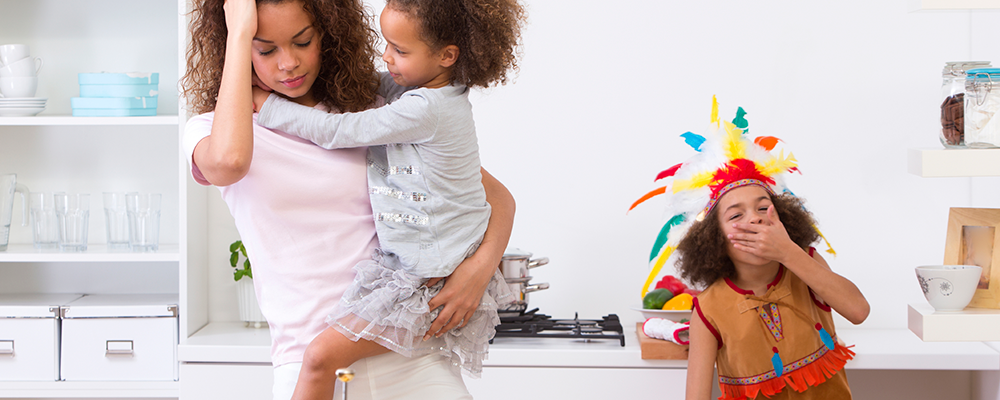Top tips to banish "I’m bored"
It's not easy to keep children constantly entertained and keep coming up with new ideas for activities." We hear from an experienced nanny with her tips on how to help kids learn to play by themselves.
How often do you hear "I'm bored" in your house?
I do not remember having time to feel bored when I was a child. What with homework, playing with my brothers, helping around the house, and that half-hour of TV we were allowed to watch once everything else was done. We knew how to entertain ourselves with whatever we had around us. We spent entire days building forts and tree houses and creating plays to put on for our parents and their friends.
Going back to basics
However, times have changed. I remember nannying for one family and being surprised by the number of activities they had on, and by the fact that the children had no idea what they wanted to do. They needed to be spoon-fed activities all day long and, at the end of the day, they would still tell me they were bored. Therefore, we went back to basics. It took a while to catch on but eventually, we had a breakthrough.
I had been helping the eldest child with her homework and had told the others we would go to the park when we were finished, but they would have to entertain themselves until then. I realised I hadn't heard a peep from the little ones in what felt like ages, so I peeked into the playroom and was surprised and delighted to see that not only were they both building a fantasy world with a combination of Lego, Barbie, Duplo and anything else they could find in the cupboard, but they were working together. I even had protests from them when I said it was time to go to the park. Our compromise was that they could leave everything where it was and come back to it later.
Banishing boredom
Boredom is a tricky one because some individuals get bored faster than others do, but here are a few suggestions to help you banish the 'b' word from your house.
A list of activities
If you have little ones who prefer to ask what they can do next, rather than think for themselves, why not help them create a list of activities. These can be things they can do on their own, or things to do with siblings, but either way without the help of an adult. This should, of course, include things suitable to their age and interests but could be as simple as reading a book, playing some board games or ball games, building a den, completing a puzzle or word-games, or doing some drawing or model-making.
When someone tells you they are bored, you can go through the list and see if they have tried any of those things. Make sure you revisit the list every now and then to freshen it up and add new interests and ideas.
Chores and rewards
This is something I will talk about all the time. There will be things around the house that every child can help with, and, as they get older, they can graduate on to having more and more responsibility. It is also worth making sure you have something fun planned for after all the tiresome tasks are completed. I do not know about you, but I work harder when I have something fun planned for after work.
Surprise box
Have a box of new and old things to do. It might be dressing-up clothes, or new board games or even seeds to plant. When you sense the dreaded 'b' word bubbling to the surface, it is time to go fishing for something to do. Kids will like the element of surprise and you will be amazed at how quickly they take to backgammon or tiddlywinks!
Downtime
I mentioned before that sometimes there can be too much organised. Between clubs, homework, playdates, and family commitments, how often do your children have some downtime? I do not mean time to watch TV or play video games: I mean time to reflect, time to take in what is going on around them.
Children today seem to be 'tuned in' or 'connected' all of the time. How often do they have to think for themselves? How often do they get to experience their surroundings without headphones or a glowing screen? It is no wonder they get bored easily if they do not have the instant gratification that digital devices can provide: often they simply do not know what to do with themselves.
Taking time out as a family is a good place to start. On weekends, set aside quiet time, where, for thirty minutes to an hour, everyone tunes out, and switches off, be it playing on their own, reading a book or just sitting and reflecting. Of course, as adults we need to lead by example, so this is not the time to bring out your smartphone and start checking emails. You also need to turn off!
For now - and the future
I do not mean to sound preachy. For one thing, I know how difficult it can be to help young children to help themselves and be more self-reliant. It is hard work, and there is no guarantee of immediate success. However, do persist if you can. Learning to play by themselves is a great life skill that will help a child not just now but in the future too.




